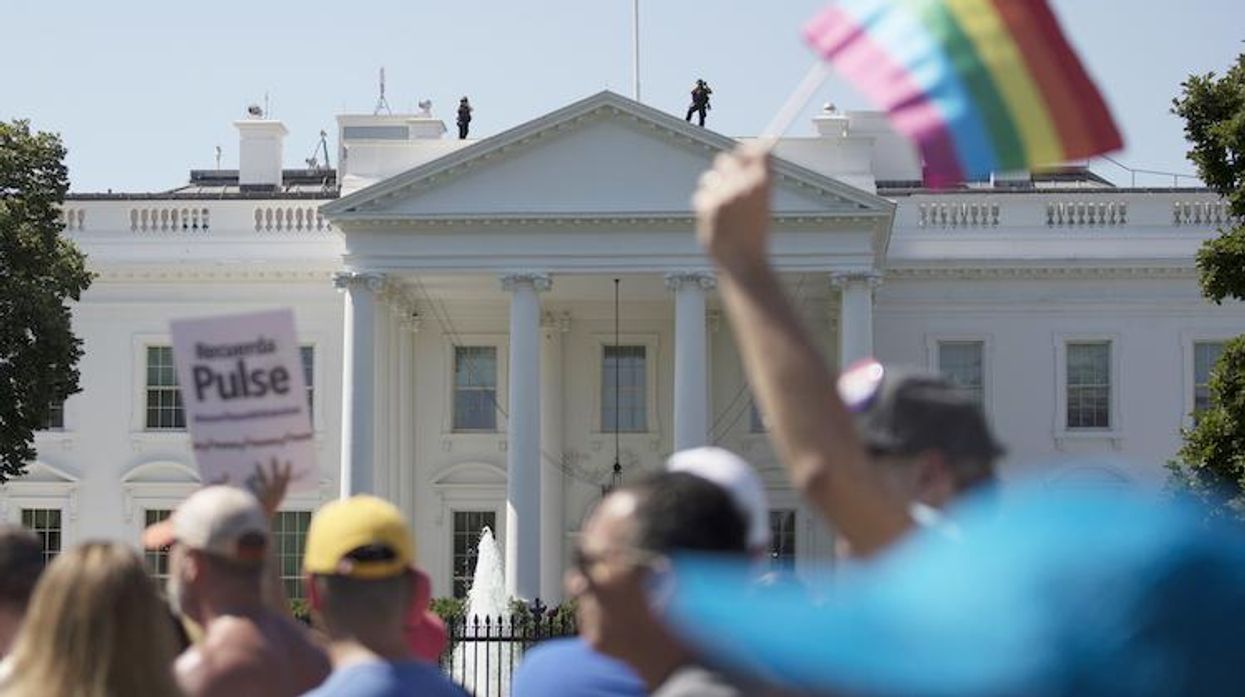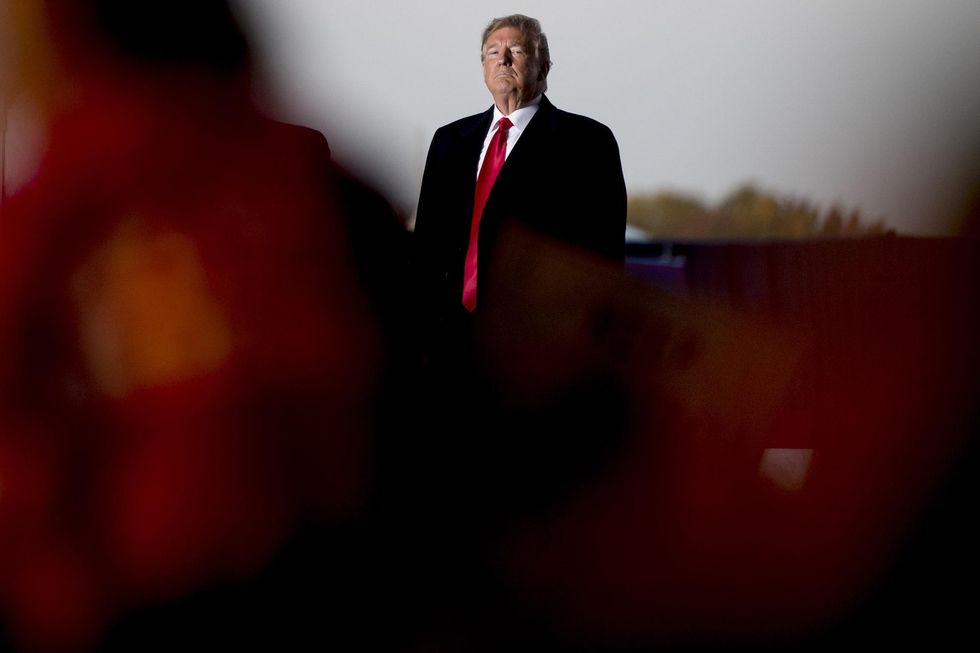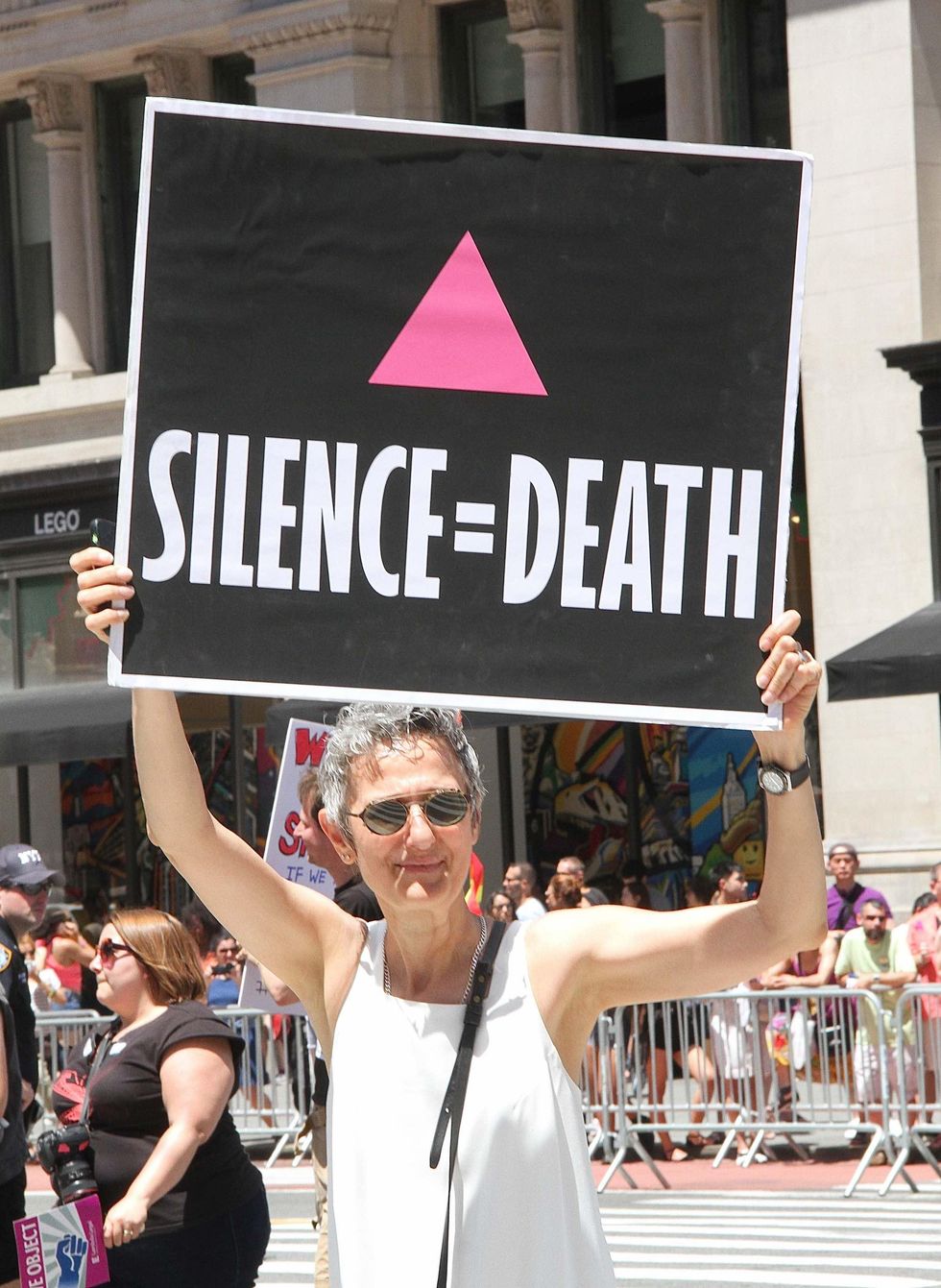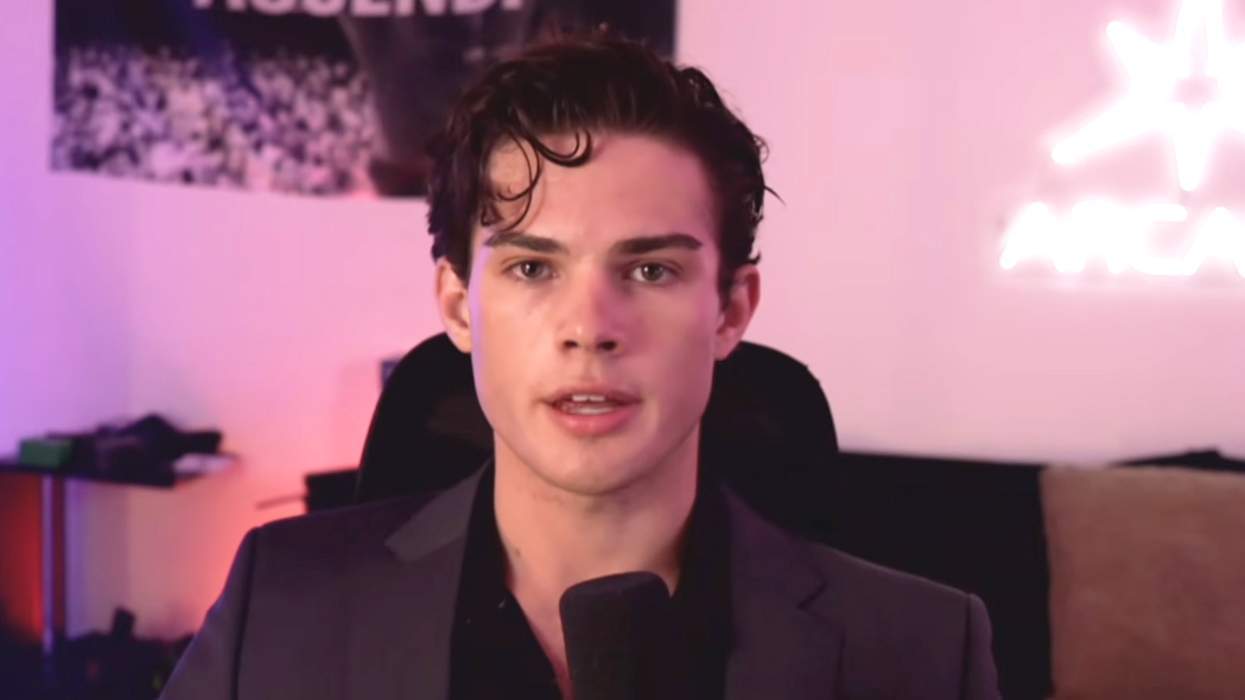Two women had just kissed each other on the lips and were holding each other tight while in line for a photocopier at Park Slope Copy Center. "Excuse me," I said. They turned, fear flaring their eyes and anxiety gritting their teeth. It was the morning after Trump-Pence had won. Both women were still decked out in Hillary swag. I made a point of being extra showy with my hands and swooshy with my posture, "Is this machine working?"
Their faces and shoulders relaxed. It was clear that I was family. And it was a reasonable question. All the other photocopiers had out-of-order signs on them. "Yes, it's working," said one of the women. She put her hand on my arm, "And how are you coping?"
I tried to keep my voice even, "My husband and I are afraid they're going to take away our marriage rights." Now that I'd actually said it, I burst into tears. For everyone I know, it'd been that kind of morning.
Related | Belligerent Gay Trump Supporter Insults Lyft Driver With Racial Slurs, Refuses to Leave Vehicle
In New York, the sky was a leaden gray and rain was dripping from it like run-off from a stopped-up tap. My husband Julius had texted from Rockefeller Center to say the subway had been a morgue all the way up to work.
My sister had called from her office in downtown Chicago saying she'd expected that at least a few people on her suburban commuter train might be celebrating, but all she saw were haunted faces and, when she got off at Union Station, all anyone could hear were the squeaking of rubber soles across the concourse's marble floors.
I'd been up since the middle of the night, answering texts and emails from friends, telling them, no, they're not dreaming and, yes, this is a nightmare, one we'll most likely be living through for another four to eight years.
"All the nightmares came today/And it looks as though they're here to stay": David Bowie had died in early January of that terrible year and these lyrics of his kept playing on heavy rotation through my mind. How I envied that he'd been spared the sight of the emerging dystopia his songs had so often warned us about.
As I stood in line for the photocopier, another email came: this one from a literary journal that was going to be publishing an essay I'd written about how Walt Whitman's anguish in Calamus had mirrored my own when I'd first read it over two decades ago. The essay concluded on a hopeful note about how times have changed and society has become more accepting. Now the journal was emailing to tell me that they were pulling my essay as my conclusion would likely prove untenable in the coming administration.
President Donald Trump pauses while speaking at a rally at Southern Illinois Airport in Murphysboro, Ill., Saturday, Oct. 27, 2018. (AP Photo/Andrew Harnik)
There's not much we can do about the vagaries of chance, and there wasn't a thing I could do about how others had chosen to vote in what Andrew Sullivan had cautioned would be "an extinction-level event."
Yet I knew there was at least one thing I could still do... I could write.
And so I walked down the street to Konditori, ordered a large iced coffee and water, opened up my notebook at the communal table and wrote without stopping or editing, just like I've done every day in cafes for over twenty years.
Actually, before I'd started this writing session, I'd noticed a guy at the coffee bar who seemed to be glaring at me. This had never happened to me before at Konditori. Yet as I looked up two or three times, his eyes seemed to only grow narrower and meaner. This is the new reality, I thought, for those of us who can't exactly "pass." Like his buddy Putin, Trump had given bigots of all stripes full permission to treat the Other with contempt. I continued writing and venting my spleen--about the election results, about my fears of the future, about my antagonist across the room.
A lot of my writer friends would soon be writing about incidents like this.
Related | Hell No to the Memo: 7 Action Items to Protect Trans and GNC People
The following weekend, for example, my friend Jill and her girlfriend were holding hands on their way from MOMA to Korea Town when a man swaggered up to them, stabbed his finger at their intertwined hands and said, "That shit ain't gonna be happenin' no more."
A mutual friend wrote a post about a similar event that happened to a college buddy in Oakland, who is married to an African-American woman. A few days after the election, the friend and his wife were holding hands as they walked home from dinner. A young white guy walked by and taunted them, "Haha! We won!"
Since the election, the Trevor Project has experienced their highest surge of calls to their crisis line for LGBT+ youth in its 20-year history. Murders of LGBT+ people in the U.S. went up 86% between 2016 and 2017. The president gives full-throated passes to White Supremacists ("very fine people"). The White House has squarely backed every discriminatory measure brought before SCOTUS--against Muslims (travel ban), African-Americans (Ohio voter purge), gays (Masterpiece Cake Shop) and women (we know the next abortion case is on its way, along with family separation). Anyone who'd been paying any attention at all before the election knew this and so much more would be coming.
The week after Trump won, I spoke with a diverse group of writers--Muslim, Jewish, queer, Latino, African-American--at Queens College about what was at stake for us now. Trump had already called for libel laws to be tightened so he could take his detractors to court. Would the First Amendment be amended? Would our government suppress dissident voices as aggressively as, say, the Chinese government? And how many of us would continue to write and publish regardless?
I couldn't raise my hand with complete confidence. Let's face it, I'm no Che Guevara. I'm not even foremost a political writer. Right when the election was called, in fact, I panicked and started deleting some of my more recent Trump-lampooning posts from my Facebook wall, lest I end up in a prison camp. In New Age circles, I'm what's known as an "empath," a highly sensitive person who can only take so much.
Why couldn't I rise so readily to the occasion like my fellow writers at the roundtable? And that's when it hit me: Some of us need to burrow deep inside before we can rise up.
Participants in the 2017 NYC Gay Pride Parade in New York, New York on June 24, 2017. (Photography: Rainmaker Photo/MediaPunch/IPX)
Two years after the election, I still have to repair to my notebooks for one or two or more hours each day (in addition to maintaining a robust meditation practice) in order to overcome my fear and trembling. It's only by doing this that I become empowered to send out petitions, write op-eds, volunteer for social service and political campaigns, give supplies and money to the homeless, stand up to injustice on the street and in the political sphere. Now more than ever I've seen that even the private act of raging cathartically on the page each day can bring greater focus and clarity to our ideas and help us to evolve more skillful responses to the challenges our society will encounter in these times. (When I wrote that last sentence, autocorrect changed "society" to "Soviet.")
After writing nonstop for an hour and a half at Konditori on the day after the election, I felt calm, centered, equanimous. I pulled out my phone and made donations to the ACLU, the Trevor Project, and my Buddhist center. I also finally got around to completing that volunteer application to tutor immigrants and refugees in English as a Second Language.
Glaring Guy was still seated at the cafe bar. I kept a steely mien and firm stride as I passed him on my way into the restroom.
When I was done, I pushed open the door and heard, "Ow!"
I'd hit someone in the head.
It was Glaring Guy. Reflexively, I said, "Oh my God! Are you okay?"
He rubbed his forehead, "I'm fine." "I'm so sorry," I said. "No, no. I'm sorry," he replied. "I shouldn't have stood so close to the door." He smiled, waved to me and went in.
It turns out he hadn't been glaring at me at all. I know. We've talked a number of times since that day. His name is Brian and he's a program director for a human-rights organization in Midtown.
As both I and the women at the copy shop learned, we must remain alert but also keep in mind that not everyone's our enemy. Writing brings me to a place where I can come to such a conclusion--even in the current administration.
Kyle Thomas Smith is the author of the multi-award-winning novel, 85A. He lives in Brooklyn and San Francisco with his husband Julius and his cats, Giuseppe and Giacomo. His cross-genre memoir, Cockloft: Scenes from a Gay Marriage, was released in September, 2018.
































